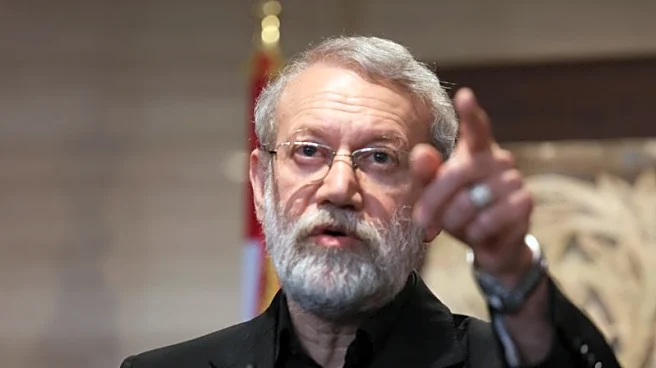Rapid Read • 8 min read
A report from the UK-China Transparency think tank suggests that Chinese students at UK universities are being pressured by Chinese officials to spy on their classmates. This is reportedly part of an effort to suppress discussions on topics sensitive to the Chinese government, such as ethnic cleansing in Xinjiang, the COVID-19 outbreak, and the rise of Chinese technology companies. The report also highlights instances where Chinese academics involved in sensitive research have been denied visas, and their family members in China have faced harassment. The Office for Students (OfS) in the UK has emphasized the importance of academic freedom and free speech, urging universities to amend or terminate agreements that threaten these principles.
AD
The allegations of Chinese interference in UK universities raise significant concerns about academic freedom and the influence of foreign governments on educational institutions. This situation could impact the integrity of academic research and discourse, particularly in areas critical to global understanding and policy. Universities that rely financially on Chinese student fees may face a dilemma between upholding free speech and maintaining their income streams. The broader implications include potential diplomatic tensions between the UK and China, as well as the need for universities to reassess their international partnerships and funding sources.
The OfS plans to strengthen its powers to uphold free speech in universities, including implementing a new complaints system for staff and visiting speakers. Universities may face fines if they fail to protect academic freedom, as demonstrated by a record fine earlier this year. The UK government, alongside the OfS, is working to safeguard free speech and tackle harassment on campuses. This could lead to increased scrutiny of Confucius Institutes and other partnerships with foreign entities, potentially affecting future collaborations and funding arrangements.
The ethical implications of these developments are profound, as they challenge the principles of academic freedom and autonomy. The pressure on students to act as informants raises questions about privacy and the role of education in fostering independent thought. Long-term, this situation could influence how universities approach international collaborations, balancing financial interests with ethical responsibilities. It also highlights the need for robust policies to protect academic freedom from external influences.
AD
More Stories You Might Enjoy












